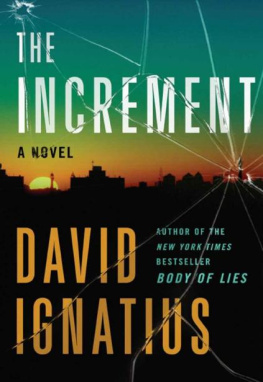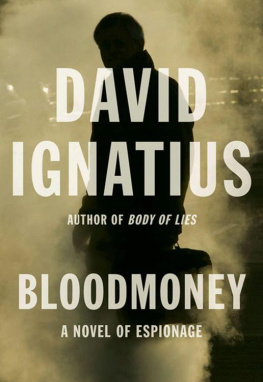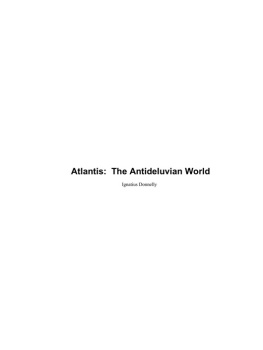David Ignatius - The Increment
Here you can read online David Ignatius - The Increment full text of the book (entire story) in english for free. Download pdf and epub, get meaning, cover and reviews about this ebook. year: 2009, publisher: W. W. Norton & Company, genre: Detective and thriller. Description of the work, (preface) as well as reviews are available. Best literature library LitArk.com created for fans of good reading and offers a wide selection of genres:
Romance novel
Science fiction
Adventure
Detective
Science
History
Home and family
Prose
Art
Politics
Computer
Non-fiction
Religion
Business
Children
Humor
Choose a favorite category and find really read worthwhile books. Enjoy immersion in the world of imagination, feel the emotions of the characters or learn something new for yourself, make an fascinating discovery.
- Book:The Increment
- Author:
- Publisher:W. W. Norton & Company
- Genre:
- Year:2009
- Rating:5 / 5
- Favourites:Add to favourites
- Your mark:
- 100
- 1
- 2
- 3
- 4
- 5
The Increment: summary, description and annotation
We offer to read an annotation, description, summary or preface (depends on what the author of the book "The Increment" wrote himself). If you haven't found the necessary information about the book — write in the comments, we will try to find it.
The Increment — read online for free the complete book (whole text) full work
Below is the text of the book, divided by pages. System saving the place of the last page read, allows you to conveniently read the book "The Increment" online for free, without having to search again every time where you left off. Put a bookmark, and you can go to the page where you finished reading at any time.
Font size:
Interval:
Bookmark:
Agents of Innocence
Siro
The Bank of Fear
A Firing Offense
The Sun King
Body of Lies
A NOVEL
W. W. NORTON & COMPANY
NEW YORK LONDON
Copyright 2009 by David Ignatius
All rights reserved
The Demon-King Zahnak, from Shanameh: The Persian Book of Kings by Abolqasem Ferdowsi, foreword by Azar Nafisi, translated by Dick Davis, copyright 1997, 2000, 2004 by Mage Publishers, Inc. Used by permission of Viking Penguin, a division of Penguin Group (USA) Inc.
Excerpt from My Country I Will Build You Again and O Box Within Box from A Cup of Sin: Selected Poems by Simin Behbehani edited and translated from the Persian by Farzeneh Milani and Kaveh Safa (Syracuse University Press, Syracuse, NY, 1999).
For information about permission to reproduce selections from this book, write to Permissions,
W. W. Norton & Company, Inc.,
500 Fifth Avenue, New York, NY 10110
Production manager: Anna Oler
Library of Congress Cataloging-in-Publication Data
Ignatius, David, 1950
The increment: a novel / David Ignatius.1st ed.
p. cm.
ISBN: 978-0-393-07140-5
1. Nuclear weaponsIranFiction. 2. Nuclear physicistsIranFiction. 3. Intelligence officersUnited StatesFiction. 4. Intelligence officersGreat BritainFiction. 5. Tehran (Iran)Fiction. I. Title.
PS3559.G54I63
2009 813'.54dc22
2008053857
W. W. Norton & Company, Inc.
500 Fifth Avenue, New York, N.Y. 10110
www.wwnorton.com
W. W. Norton & Company Ltd.
Castle House, 75/76 Wells Street, London W1T 3QT
For Jonathan Schiller
and
Dr. Richard Waldhorn
I will rise, in slow increments.
I will make my face beautiful
like a mirror held to the rainbow.
I will scatter blue petals in the wind,
let my silk scarf flutter in abandon
I will find myself suddenly in full bloom
and you doomed to rot.
SIMIN BEHBAHANI,
O Box Within Box, from
A Cup of Sin: Selected Poems
The Increment was (and is) a selected unit of SAS soldiersallocated for use by SIS, the British equivalent of the CIA. MI6 undercover intelligence officers do not and never have had the fabled license to kill of James Bond mythology. But when such jobs are required, it is the Increment whose rules of engagement may permit the lethal use of firearms.
THE CENTER FOR PUBLIC INTEGRITY
Imagine a gaudy boulevard descending a hill, like a swath of icing dripping down the inside of a coarse earthen bowl. The broad street is lined with department stores and little shops; it pulses with neon signs shouting the brand names of cell phones and airlines and fast-food restaurants. But the commercial thoroughfare is grimly punctuated every few blocks with hand-painted banners commemorating the blood of the martyrs.
This is Vali Asr Avenue, the spine of North Tehran. The avenue rises in the burly districts of downtown, where rage against the unbelievers is nurtured and sustained every Friday at prayers, and it ascends mile by mile till it reaches the heights of Jamaran, where one might think, to look at the Parisian fashions and big German cars, that the unbelievers are everywhere. But that is wrong: atop these hills are the secrets of modern Iran, a nation whose very identity is in some ways a fabric of lies. Nothing along this avenue is quite what it appears to be. That is the warning, and the temptation. Even the name of the street is elusive: officially it is Vali Asr, but the smart set like to call it by its pre revolutionary name, Pahlavi Avenue.
Tehran plays tricks this way. It is the cockpit of the Islamic revolution and the capital of a nation that lives by reckless taunts, yet the police here insist that drivers wear their seat belts. The mullahs summon pilgrims to the holy city of Qom, but not too hastily; the highway patrol have radar guns to catch speeders. It is forbidden, of course, to watch the foreign television channels of the infidels. So everyone pays a small bribe to the local militiamen known as the basiji not to notice the satellite dish atop the roof. The spine of this noble city is pliable; like the nation, Tehran bends so that it will not break.
Our story begins along Vali Asr Avenue, with a young scientist who lived in an apartment down near the bottom of the street, in the neighborhood known as Yoosef Abad, but who was blessed to work up at the magisterial summit in Jamaran. He spent his days shuttling between these two worlds, a child of privilege and also of angernot at the unbelievers, but at the people who presumed to rule over them. This is the story of his decision to abandon one idea of what is right and good in favor of another. Like all accounts of young men struggling to find their paths in the world, it is a story of fathers and sons. You could say that it is a story of betrayal, and also of fidelity.
On the morning the young Iranian scientist made his decision, he awoke to find the sheets wet under his body. He had sweated through the night once again in his anxiety, and he was ashamed as if he had pissed in his bed. That was the moment he knew he must act. He could not continue waking up with the feeling that he was a coward. It would be better to step across the boundary and embrace his fear than to tremble before it any longer. It was like any other decisive breaka divorce, or leaving home, or refusing to pray. You did it, really, because you had no choice. If there were another way, less painful, who would not take it?
The young man had been reading the night before from a book of poems by Simin Behbehani, an Iranian woman who was his nations most beloved modern writer. His father claimed he had known her when he was a professor at Tehran University and she a student, and maybe it was true. Like his father, Behbehani had never left Iran for long, even in the worst days, but there was in her poems an anguish, and a yearning for escape. The young man had left the volume open beside his bed, to a poem called My Country, I Will Build You Again, and now in the morning he read the words again:
My country, I will build you again,
if need be, with bricks made from my life.
I will build columns to support your roof,
if need be, with my bones.
I will inhale again the perfume of flowers
favored by your youth.
I will wash again the blood off your body
with torrents of my tears.
It should not only be the poets who tell the truth, the young man thought. The Islamic Republic of Iran was not his country. He had secretly become one of the doshmand, the enemy. He had wanted to disappear into the shadows of his work and enjoy his privileges, like any other hypocrite, but that had become impossible. That was what frightened him: he could not escape from himself. His father had told him that he must listen to his own voice, and not to those who impiously claimed to speak for God. He had said it the night before he died, and the scientist had answered, Yes, Baba, I understand, which made it a promise. He didnt want to be a betrayer, but the promise was already inside him; it had taken root. It was crowding out the other voices, so that he heard only his own.
When he awoke that morning, he had the nub of a plan: he would drop a pebble into the pond. That was all. The pebble would be information, the smallest bit of the truth about what he was doing in his laboratory. And then he would let the water ripple where it would. No one would see him do it, or trace cause and effect. Something had come into his hand, and he would let it fall. That was what he thought was possible in the beginning.
The young scientist traveled that morning to a white office block in Jamaran. The windows were tinted, and there was no marking on the faade to suggest what work was done there. There were laboratories inside, with exotic equipment that had been acquired secretly from the West. But the real asset was the people, like the young scientist and his friends. At the side of the building was a door, halfway down an alleyway that curved like a crescent moon, and above this door was a surveillance camera that monitored every movement in or out. The building was part of a secret archipelago in this neighborhood and several others in the city, a string of addresses that couldnt be found on any map or in any public directory. You had to be part of the network to know that it existed. It was a condition of membership that you were always watched, and that you didnt know who the watchers were.
Font size:
Interval:
Bookmark:
Similar books «The Increment»
Look at similar books to The Increment. We have selected literature similar in name and meaning in the hope of providing readers with more options to find new, interesting, not yet read works.
Discussion, reviews of the book The Increment and just readers' own opinions. Leave your comments, write what you think about the work, its meaning or the main characters. Specify what exactly you liked and what you didn't like, and why you think so.









